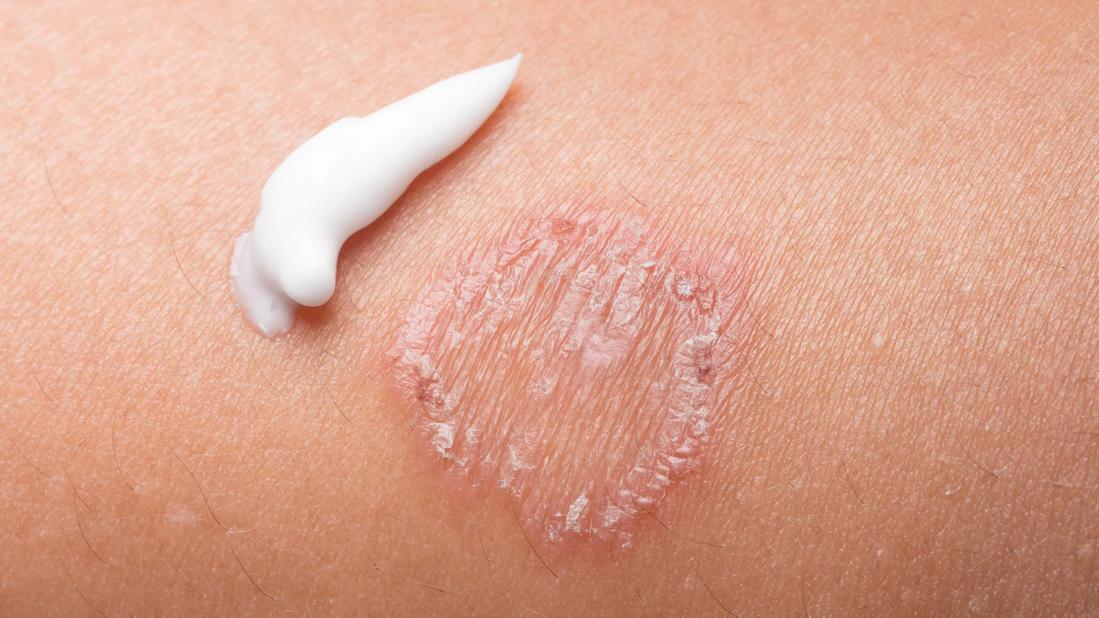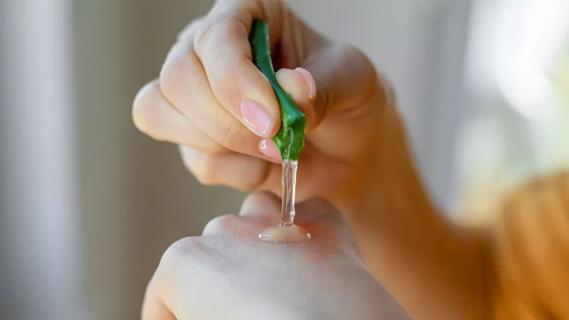Over-the-counter antifungal creams usually get the job done, but it’s important to keep it from spreading in the meantime

Finding out you have ringworm can make your skin crawl. But rest assured, there are no actual worms involved. A common fungus that affects 20% to 25% of the world’s population at any given time causes this highly contagious skin infection.
Advertisement
Cleveland Clinic is a non-profit academic medical center. Advertising on our site helps support our mission. We do not endorse non-Cleveland Clinic products or services. Policy
Done playing host? Primary care physician Matthew Badgett, MD, explains how to get rid of ringworm.
You can usually treat a standard case of ringworm with over-the-counter (OTC) antifungal creams. Using them for the entire treatment period and practicing good hygiene — like washing your hands, not touching the infection, and keeping the area clean and dry — should get rid of the problem.
Treating ringworm is pretty straightforward, but Dr. Badgett says it isn’t a quick process. Mild cases can clear up within a few weeks. But more serious infections may linger for a few months, even if you’re taking the necessary steps to knock them out.
OTC ringworm cream products such as Tinactin® (tolnaftate topical) or Lotramin® (clotrimazole) are often found in the foot care aisle and marketed for athlete’s foot, a similar type of fungal infection. If you use them twice a day, the infection should start clearing within a few days.
Fungal infections can be stubborn. Keep using the cream morning and night for a month after it’s cleared to fully wipe out the fungus and prevent it from making a repeat performance. “Using the creams consistently is the key,” Dr. Badgett emphasizes.
If an OTC treatment hasn’t made a dent in the rash within two weeks, check in with a healthcare provider. Your infection may need to be treated with prescription antifungals.
Advertisement
Getting on an OTC or prescription antifungal regimen is the most important step for curing ringworm, but it’s not the only thing you can do. Dr. Badgett suggests that you:
Ringworm is unlikely to go away on its own. And it could get worse, spreading to other areas of your body if you don’t treat it.
“Proper care and a little patience usually do the trick for ringworm,” Dr. Badgett reiterates. “Just don’t ignore it. If you do, a small infection could turn into a much larger problem.”
Another reason to treat ringworm? It’s contagious.
Dr. Badgett recommends the following to keep ringworm from spreading to other parts of your body, to other people and to your furry friends. (Yes, it’s possible.)
Advertisement
Contact a healthcare provider about ringworm if:
“Don’t hesitate to reach out for help if you’re unsure about how to manage ringworm,” Dr. Badgett advises. “If you’re not sure you’re dealing with ringworm or you’re worried it’s not getting better, a quick visit to your doctor can make all the difference.”
Advertisement

Sign up for our Health Essentials emails for expert guidance on nutrition, fitness, sleep, skin care and more.
Learn more about our editorial process.
Advertisement

Some natural home remedies may offer relief, but they lack scientific evidence and won’t typically cure the condition

The world is getting warmer and fungi are evolving

Although it could be used as a moisturizer, this new trend is not recommended

The popular skin care ingredient can help smooth, brighten and strengthen your skin

It’s a great disinfectant for around your home, but not for your skin

Changes in texture, smell, color and performance are signs it’s time to throw the cosmetic item away

Follow the 4Cs — cooling, cleaning, covering and comforting — to start the healing process

Bathing once a day is the general guidance, but you could also have reasons to soap up twice a day or not at all

Even small moments of time outdoors can help reduce stress, boost mood and restore a sense of calm

A correct prescription helps your eyes see clearly — but as natural changes occur, you may need stronger or different eyeglasses

Both are medical emergencies, but they are very distinct events with different causes